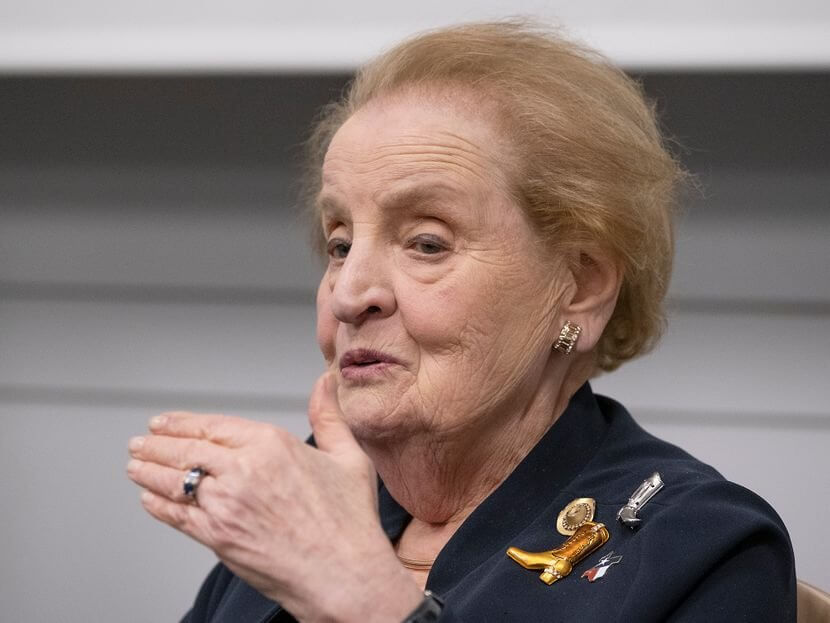It was like we were in a time machine. Some old faces, and some even older stories, as if nothing has changed in the last quarter of a century. The discussion in the Committee on Foreign Affairs of the House of Representatives of the Congress was aimed at giving advice to the future presidential administration of Joe Biden on how to conduct the policy towards the Balkans. If we were in 1995, and not on the threshold of 2021, everything we heard would be much more logical, but fortunately there is no time machine.
The long-time head of this important committee, Congressman from New York Eliot Engel, is leaving that position, handing it over to his fellow citizen Gregory Meeks, and the discussion dedicated to the Balkans was his farewell charing of the Committee. It was an opportunity for his colleagues from the Congress to thank him for the good cooperation and, to say everything that is usually said on such occasions. Eliot Engel could not choose another topic for this occasion, because his career was marked by one word – Kosovo! It is difficult to find a more devoted and persistent advocate of Kosovo’s independence in Washington, and he demonstrated that on this occasion as well. He spoke about Kosovo Albanians as the greatest and most loyal friends of America in the whole world, he said that he had a lot of friends among Albanians in New York, and he was especially proud that a street in Pristina was named after him and that his face is on the postage stamp of Kosovo! Nice memories for a political retiree, which should be only his private matter, but it is different when such maximum bias and political short-sightedness turn into an important advisory form intended for the future president of the USA.
As a support, Congressman Engel invited to the Congress all the aces of the old American policy in the Balkans – Madeleine Albright, Daniel Serwer and Janusz Bugajski. And so, things were more than clear – Kosovo must be provided with full independence, full international recognition, preservation of its borders, membership in all international organizations, and Serbia must be forced to accept all that, otherwise it will be punished. Simple, isn’t it? Except that this concept is as old as it is unsuccessful, and Washington also gave up on it. Engel and his colleagues could have known that, if only they had remembered the words of Joe Biden, after the meeting he had with Aleksandar Vučić in Belgrade four years ago: “Serbia is successful, in our long history some things were painful and were not good, I’m proud that we’ve started a new chapter based on mutual respect.”
If the man you are now advising on how to pursue a policy towards the Balkans, and especially towards Serbia, said back in 2016, as the vice president of the United States, that America was changing its attitude towards Belgrade and would treat it in the future as a partner, not a rival, then at least those views of his should have been taken into account. And “accept the reality” that without Serbia, no work that concerns it can be completed. Thus, Engel, Serwer, Bugajski and others looked strange, like they have been taken out of a time capsule, buried deep in 1995 or 1999. Madeleine Albright looked least strange, reminding her colleagues that the Balkans today and the Balkans two decades ago are not even alike. And that the policy of the future president of the USA should be adjusted to that. As one of the proofs, she reminded that the American regional office for financial support DFC, with the agreement of President Vučić and Trump, has already been opened in Belgrade and that is, as she said, “a big step forward”.
When Madeleine Albright, an icon of American diplomacy from the period of the democratic administration, advises that new Serbian-American relations should be preserved, even if they have progressed under the “much hated” Trump, then she should be trusted. The common factor of this great change is Aleksandar Vučić, he was a host to Joe Biden in Belgrade four years ago, when the future American president said that “Serbia is an economic and political cornerstone for the entire region”, and three months ago Vučić “certified” these new relations by signing the agreement in the White House, which opens the door for the United States to come to the Balkans with money, ideas and good intentions, and not with pressure and bombs. An independent Kosovo will continue to be an unquestionable fact, but not at the cost of a conflict with those who think differently about it, primarily with Serbia, as a key country in the region, to paraphrase the future American president.
Eliot Engel’s farewell “party” was therefore a symbolic dance of an ancient and outdated policy that did not benefit America, Serbia or the Balkans. Fortunately, the words spoken there will not have an impact on future relations, because those who remain to build them, and that is primarily Vučić and Biden, understood each other well a few years ago, face to face. In the years ahead, they will not need advisors like Eliot Engel, Daniel Serwer or Janusz Bugajski, to whom we wish peaceful retirement days. At least when it comes to the Balkans.
